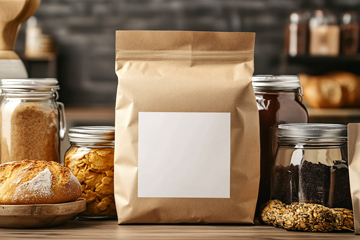The MDA performs special registration reviews on new pesticide activ
The Minnesota Department of Agriculture (MDA) is encouraging farmers to take part in its annual pesticide and fertilizer use survey. This year the phone survey is directed at corn and soybean producers. The data helps the MDA track the use of agricultural chemicals on Minnesota farms and provides guidance to educational and research programs.
The survey will begin February 3 and be completed by February 26. Survey questions will focus on pesticide and fertilizer applications on corn and soybeans grown in Minnesota for the 2024 season. The annual survey is completely voluntary, and farmers are not asked any personal questions.
The survey is conducted for the MDA by the USDA National Agriculture Statistics Service out of their regional offices in Missouri and Arkansas. The calls will often be identified as ‘Nass Call Center’ on caller ID.
Minnesota farmers may be getting calls from multiple agencies and companies conducting a variety of surveys this time of year, but the information gathered from this survey is critical for research purposes.
If you have questions about the MDA’s annual survey, or if you wish to view results of previous surveys, visit the MDA website at www.mda.state.mn.us/pesticidefertilizersurveys. Producers can also call the Minnesota Department of Agriculture at 651-955-4066 from 7 a.m. – 9 p.m., Monday – Saturday.
###
Media Contact
Allen Sommerfeld, MDA Communications
651-201-6185
Allen.Sommerfeld@state.mn.us
Frequently Asked Questions
Beginning Farmer Tax Credit
For more information and application instructio
No. Based on the state law for this program, the beginning farmer must be an individual sole proprietor, not a business entity. Farmers who structure their businesses as LLCs (even single member), partnerships, etc. must apply as individuals with their own name (not the business name) listed on the lease or sale documents.
Asset owners, however, may be an individual, trust, LLC, partnership, S-Corp, or other qualified pass-through entity.
Yes. Applicants must apply in the first year of the contract. The asset owner will received a tax credit on the full sale price in the first year of the contract. Applicants must submit either a settlement statement or notarized contract for deed as documentation.
This is generally determined by the number of years the beginning farmer has filed farm income on their federal income taxes, Schedule F. Years filing a Schedule F while claimed as a dependent by their parents or guardian (ex. as an FFA or 4-H activity) do not count toward the 10 years, and the years do not need to be consecutive (ex. farming in 2013, 2014, 2022, and 2023 would be 4 years total).
Generally, yes. The value of the residence (or any other non-agricultural improvement) will be deducted from the sale price to calculate the tax credit. The value of a home can be determined by submitting an itemized property tax statement or by providing a copy of the appraisal.
Example:
- Sale price is $500,000
- Appraisal value of home is $200,000
- Appraisal value of farmland and agricultural buildings (barn, pole shed, etc) is $300,000
- Tax credit would be 8 or 12% of the qualifying $300,000 in agricultural assets = $24,000 or $36,000
Yes, asset owners who are not Minnesota residents are eligible. However, this tax credit is only for tax liability due to the state of Minnesota.
Yes, asset owners are eligible for the tax credit if they are selling their farm with a 1031 Exchange.
No. According to the state law for this program, an eligible asset owner is, “an individual, trust, or pass-through entity that is the owner in fee of agricultural land or has legal title to any other agricultural land.” A C-Corporation is not a “pass-through” entity as described in the law.
No. Based on the state law for this program, the beginning farmer must be an individual sole proprietor, not a business entity. Farmers who structure their businesses as LLCs (even single member), partnerships, etc. must apply as individuals with their own name (not the business name) listed on the lease or sale documents.
Asset owners, however, may be an individual, trust, LLC, partnership, S-Corp, or other qualified pass-through entity.
No. Based on the state law for this program, the beginning farmer must be an individual sole proprietor, not a business entity. Farmers who structure their businesses as LLCs (even single member), partnerships, etc. must apply as individuals with their own name (not the business name) listed on the lease or sale documents.
Asset owners, however, may be an individual, trust, LLC, partnership, S-Corp, or other qualified pass-through entity.


